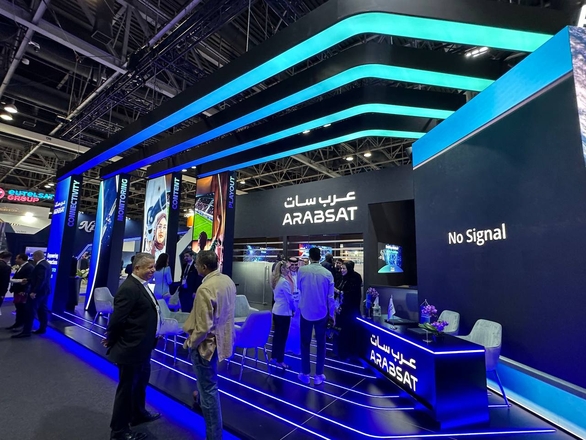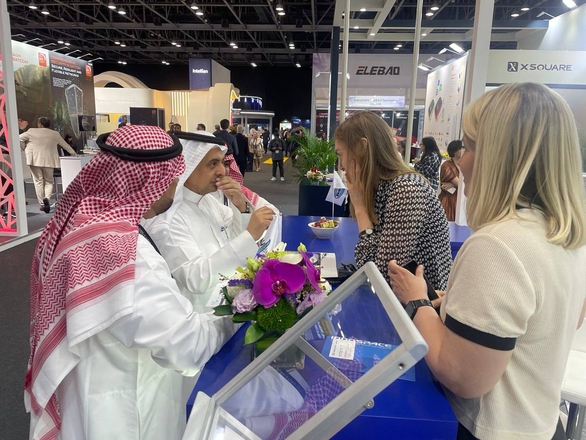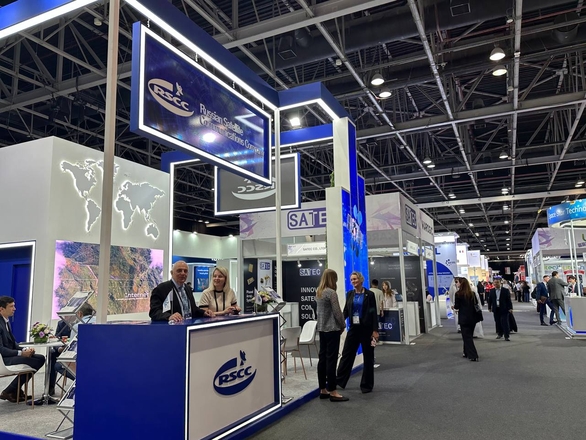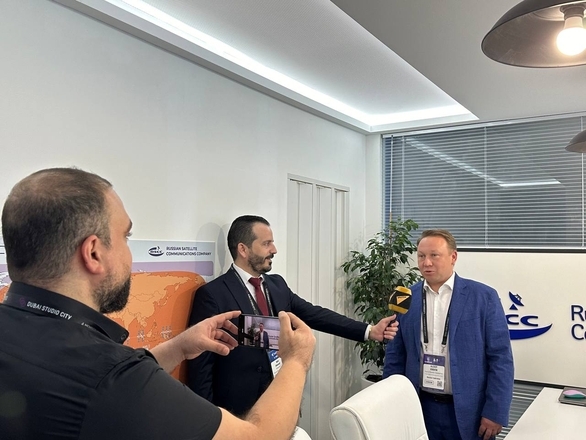Not just fiber optics: RSCC team held talks with customers at CABSAT 2025
The Russian Satellite Communications Company presented its connectivity and video solutions at SATEXPO (CABSAT) 2025 in Dubai. The 31st international exhibition of satellite telecommunications and digital media CABSAT was held from May 13 to 15 at the World Trade Center (DWTC). This year, it brought together more than 450 exhibiting companies and 18,000 participants from 120 countries. CABSAT ranks third in importance in the world at the industry level, given the enormous opportunities offered by the Middle East region. Studying technological innovations and emerging trends are the main goals of the event.
The RSCC stand presented the Express-AM7, Express-AM8 and Express-AM6 spacecraft, which provide coverage of Africa, the Middle East and South Asia. Using its own fleet, RSCC is ready to offer customers all turnkey satellite solutions: delivery and distribution of media content, data transmission, departmental and corporate communications, maritime VSAT and inflight connectivity. Currently, three major air carriers use the capacity of the RSCC satellites to provide services to passengers during the flight. Over a thousand sea vessels rely on the company’s spacecraft, and 530 ships work directly in the RSCC maritime VSAT network.
RSCC team held a number of meetings and negotiations at its stand, following which current customers in the region confirmed their interest in the RSCC services. Representatives of MEASA operators - the Middle East, Africa and South Asia - also visited the stand and showed interest in the capabilities of the RSCC constellation.
"Today, we consider the Middle East and Africa to be the most promising markets. Due to significant differences in development, the region needs both advanced services and traditional video contribution and distribution," said Alexey Vdovin, Director of Business Development of RSCC.
One of the important results of CABSAT for RSCC was the negotiations on cooperation with Arabsat, a leading global satellite operator and the main provider of space communications services in the Arab world. The companies discussed the potential of implementing joint projects in Africa. Today, Arabsat operates eight satellites in GEO in four orbital positions. The operator supports more than six encrypted television networks and provides services for more than 650 TV channels, including more than 160 channels in HD format, as well as 245 radio stations around the world. RSCC operates 12 GEO satellites, has experience in 62 countries and provides broadcasting of 1,100 TV channels.
At the SATEXPO (CABSAT) exhibition and conference, experts pointed out the demand for space communications in the MEASA region that is based on several factors:
- the persistent connectivity gap between the city and rural areas and digital inequality;
- the geographical location of the Middle East at the junction of Europe, Asia and Africa.
The region is an important center of global Internet traffic; eight major projects to lay submarine fiber-optic lines are planned for the next decade. A network failure, such as a cable break in the Red Sea, interrupts the operation of the entire infrastructure. The most common method of backing up cable communication lines is satellite channels.
Express spacecraft have repeatedly proven their reliability in backup, and RSCC is ready not only to offer its customers all modern communication services, but also to “insure” its customers in the event of interruptions in the operation of terrestrial systems.




